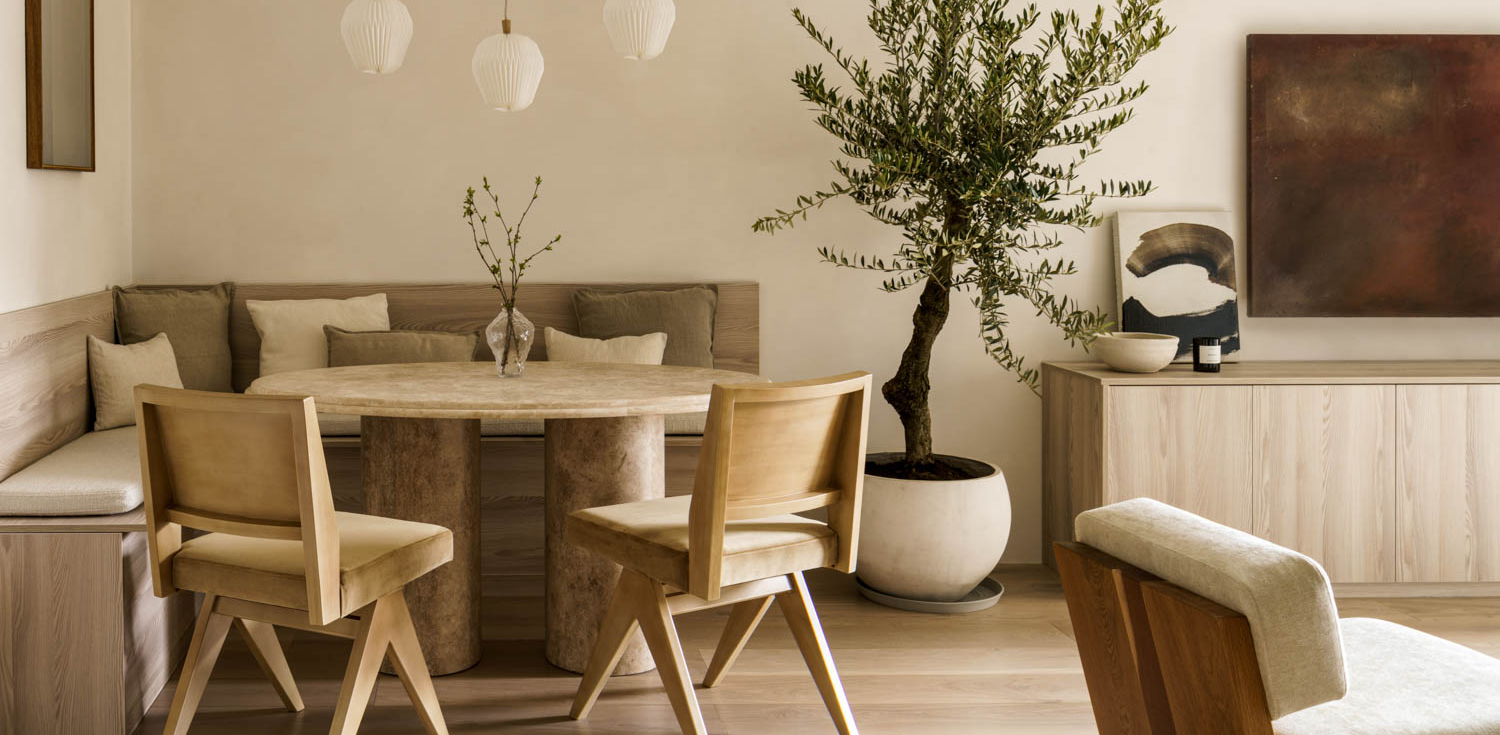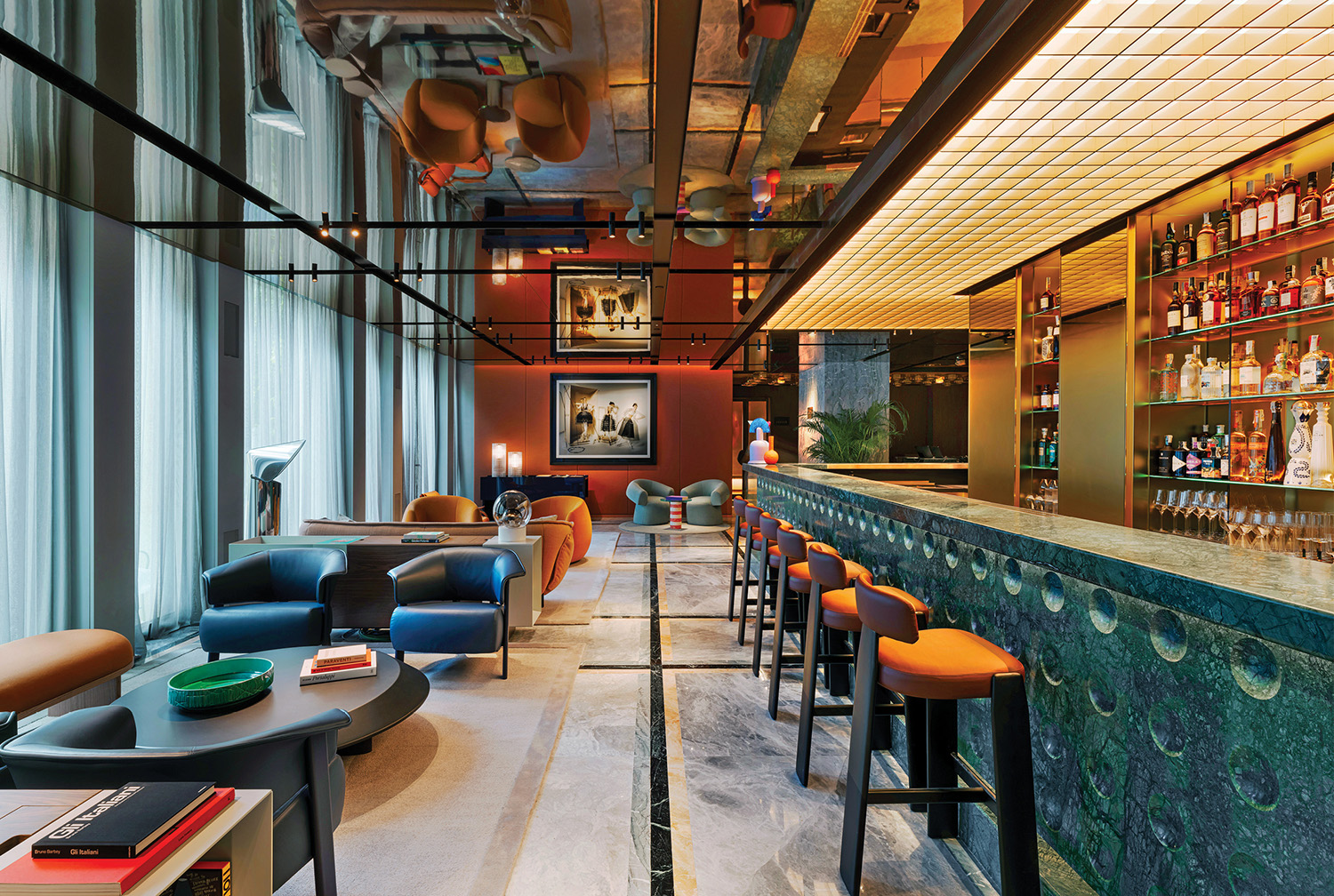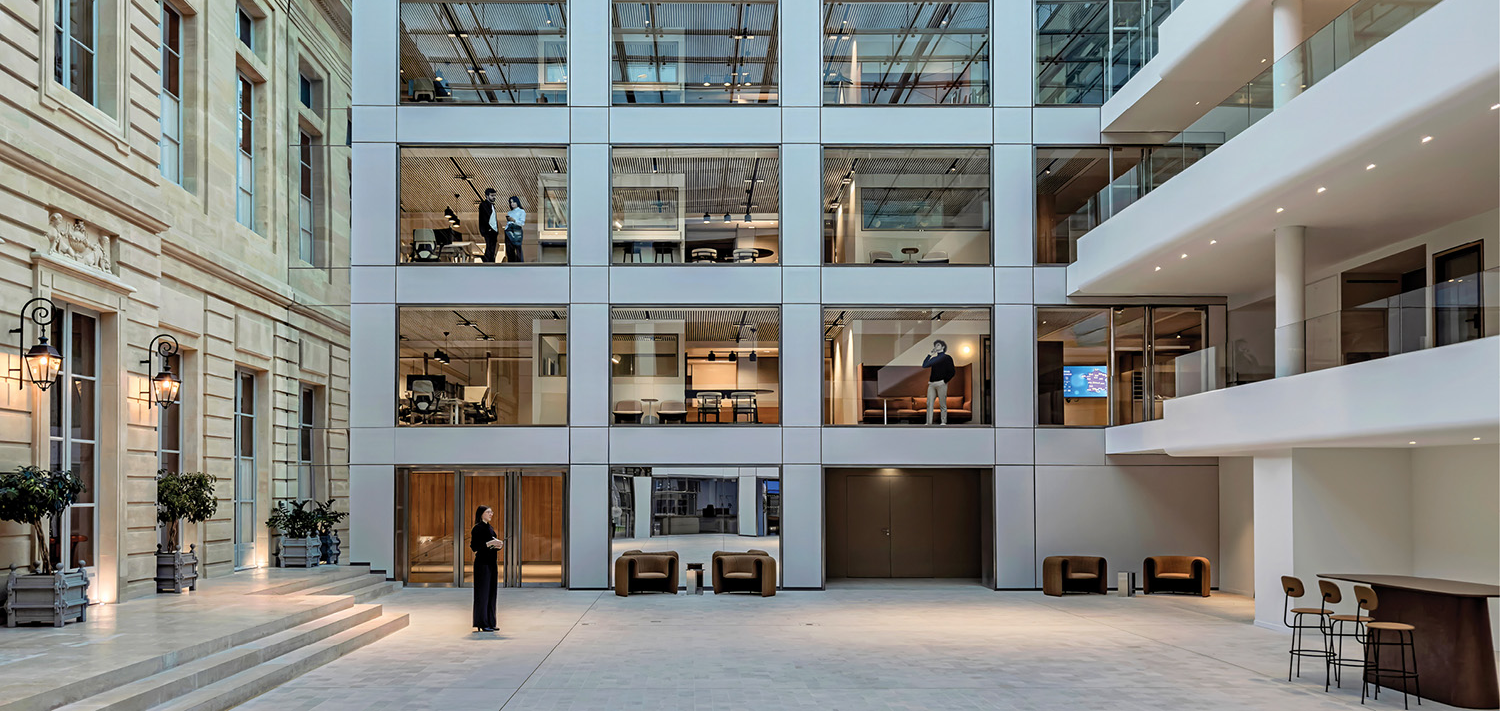Dries Otten’s Colorful Kitchens Evoke Abstract Canvases
Growing up near Antwerp, Belgium, Dries Otten would open both windows of his bedroom in wintertime and, in the cold, paint himself into a trance. That love of painting would lead Otten to earn a master’s in art restoration. “But it was terribly boring,” he recalls. “And the better you were at your job, the less visible your work.”
Not content to simply preserve the creations of others, he went on to a master’s in interior architecture and eventually opened his namesake studio, focusing on bold, colorful kitchens composed rather like abstract canvases. Allusions to De Stijl, abstract expressionism, and Memphis are apparent. A 1920 geometric mural, for example, inspired the painted backsplash of the kitchen in a house in Antwerp. His favorite color, a mid-tone gray-blue, he describes as Le Corbusier in feel. “We exist in a continuous line,” Otten says. “To me, it would be weird to design without referencing history.”

He also favors unassuming materials. A slab of green plastic sits on top of the kitchen counter—surrounding the sink and doubling as a cutting board—in a loft in a converted factory in the small city of Mechelen. Back in Antwerp, in an apartment in a former mansion, a cheap-and-cheerful striped fabric serves as a skirt beneath the kitchen counter. “I hate pretension,” he explains. Nothing showy or gratuitous. Accessible alternatives such as terrazzo and perforated particleboard recur. Now that plywood is “in every bar and pop-up,” he notes, he’s started to move toward darker woods and, simultaneously, bright lacquer. When you’re fed up with the color, he advises clients, just repaint.
There’s always a sense of fun, of not taking it all too seriously. To wit, he just lined a round bedroom in cardboard tubes painted white. It looks, he divulges with a grin, like a fluffy marshmallow.



